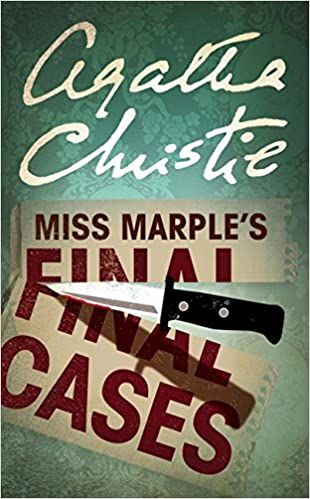My interest in Agatha Christie has ebbed and flowed my entire life. She was the first adult murder mystery writer that I remember reading. As a kid, I devoured her books—there were so many of them—reading one every week for many months. It’s no doubt where I developed my murder mystery taste for preferably English parlor rooms with smart characters and clever detectives, sex and violence minimal (or off stage like an Ancient Greek play).
Growing Up With Christie
But with time, I began to tire of Christie’s mysteries. I had figured out the key to her mysteries. For the last ten books I read as a child, I guessed the murderer every time, which was disappointing. I wanted to be surprised, but in a fair way.
I would go on to discover the wonders of other classic murder mystery writers like Dorothy L. Sayers, Raymond Chandler, and Rex Stout. The sensibilities that I developed with Christie’s books still remained and furthered. I still prefer the writers of the 1930s (give or take a decade). If the mystery is written more recently, I also want it set in that 1920–’40s time period.
But Agatha Christie has found her way into my consciousness every couple of years. I got excited to see an Orient Express train car as part of the Agatha Christie and Archaeology exhibition at the British Museum in the early 2000s. I got to fangirl a little when we saw the Istanbul train station where the Orient Express terminated its journey. Talk about luxury from another age! I was also thrilled to visit The Pera Hotel in Istanbul where she stayed and even went missing for a few days.

Photo Credit: Elisa Shoenberger
Now we are seeing the rise of movie adaptations of her work again, such as the 2017 Murder on the Orient Express with Kenneth Branagh and the upcoming adaptation of Death on the Nile. Sadly, I find the Murder on the Orient Express novel overhyped, though I do appreciate any depiction of the Orient Express train. In 2018, I took a road trip to Cornwall and Devon and ended up in Torquay, Christie’s birthplace and home for many years. We spent time tracking down the bust of Christie as well as checking out the Torquay museum that had a room dedicated to her, which was nice.
Poirot v. Marple
During the pandemic, I’ve started watching television adaptations of Agatha Christie’s work, which I had never seen before. We’ve been watching Agatha Christie’s Marple (2004) as well as Agatha Christie’s Poirot (1989).
In addition to the top-notch mysteries themselves, I’m finding a lot of fun watching the more recent Marple series to see familiar British stars (is that the Cumberbatch? Is that Sally from Coupling?). Poirot feels more ingrained in the time period with its graphics and staging.
The biggest surprise is how my feelings about the two principal detectives have changed. As a kid I was a fan of Hercule Poirot. I loved his sense of taste, his love of food and fashion, and most of all his “little grey cells.” He seemed to have the best mysteries too, like Death on the Nile and The Murder of Roger Ackroyd.
On the other hand, Miss Marple was less interesting to me. She seemed so mousy to teenage me. Her mysteries tended to be less dramatic, whereas Poirot seemed like he dealt with higher profile, international cases.
With the adaptations, it was as if an occult hand had reached down and made me reevaluate my thoughts on the two detectives. Poirot seemed fussy and easily annoyed by his common man. Conversely, Miss Marple seemed to be everyone’s friend and had an earnest desire to help people, whether clear someone’s name or help young lovers.
But even more important, I realized that her quiet and seemingly unassuming nature was actually a tool that I had missed as an uninformed, sexist teenager. What I had mistaken for passiveness was what made her such a good detective. Everyone seemed to constantly underestimate her but she was as sharp as a tack. She saw things that other people don’t see; people let their guard down with her. Her soft-spoken nature didn’t mean that she didn’t get things done; she helped get the murderer at the end every time.
At a time when women are constantly criticized for being too loud and brash (and still are, sadly), Miss Marple was able to find a way to use the qualities that society expected of women, especially spinsters, as a weapon. She lived her life the way she wanted to, helping people—even those society believed unworthy of help—and caught some evil people up to no good.
So while I’ll definitely see Death on the Nile (when it’s streaming), I can only hope that Hollywood might decide to adapt one of her Miss Marple stories for the big screen. (Perhaps The Thirteen Problems or The Murder at the Vicarage, maybe played by Judi Dench?) Miss Marple deserves it.
We’ll see where Agatha Christie takes me in the next few decades. I can’t wait.
Want more Agatha Christie? Check out this guide to the Best Agatha Christie books or this ranking of Agatha Christie movies.

